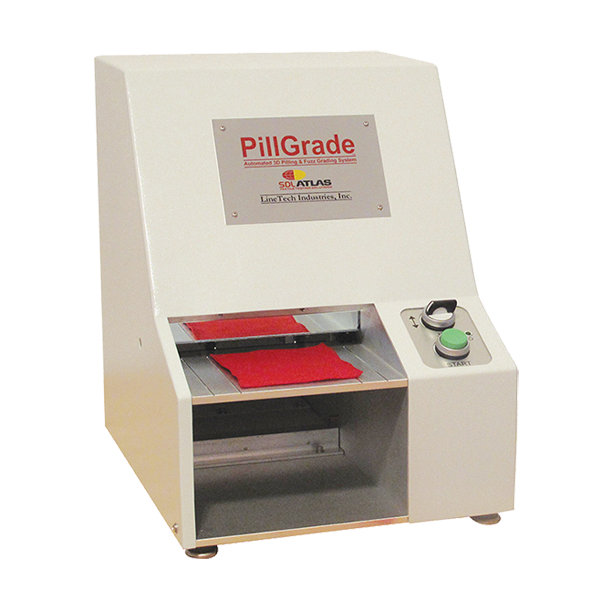Introducing PillGrade
PillGrade revolutionizes fabric testing with its state-of-the-art 3D scanning system, delivering objective and repeatable grading of fabric samples for surface properties. This technology marks a significant advancement over traditional subjective pilling grading methods, offering results that are consistent, reliable, and easily verifiable across the textile supply chain.
Key Advantages of PillGrade
- Objective and repeatable grades ensure consistency and reliability.
- Fast and straightforward operation, with results in approximately 5 seconds.
- Compatibility with ASTM & ISO grade scales enhances global applicability.
- Comprehensive data compilation for production and supplier quality management.
- Ability to measure and grade fuzziness and snagging in textiles.
How PillGrade Works
PillGrade’s advanced technology detects the sizes, numbers, and locations of pills on the fabric surface, grading the sample’s fuzziness on a 1.0 to 5.0 scale according to both ASTM and ISO standards. Its versatile design allows for scanning and grading of fabrics regardless of weight, color, and pattern.
Simplified Testing Process
Designed for ease of use, PillGrade automatically loads samples upon placement. Capable of grading any textile material, it offers an efficient solution for quality control in the textile industry. The system provides detailed results, including pill quantity, size histograms, average pill size, pill density, and fuzz loft.

